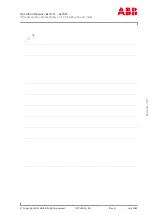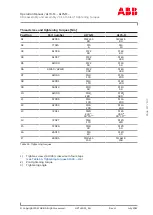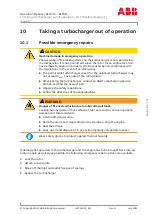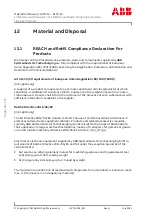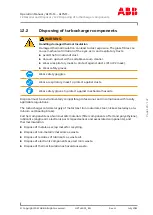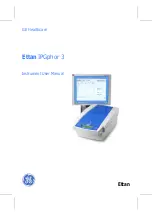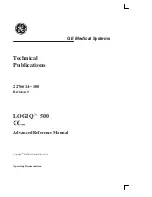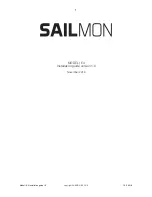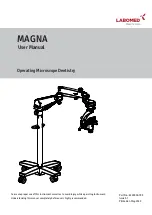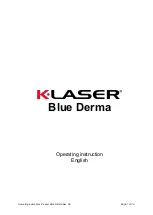
Operation Manual / A170-M.. - A175-M..
10 Taking a turbocharger out of operation / 10.2 Locking the rotor
© Copyright 2021 ABB. All rights reserved.
HZTL4033_EN
Rev.H
July 2021
10.2.3
Further information for operation of 4-stroke engines
with locked rotor
4-stroke engine with one turbocharger
No further measures are necessary. The engine can be operated as a suction engine accord-
ing to the instructions of the enginebuilder.
4-stroke engine with several turbochargers
Separate receivers
In engines with separate air and exhaust gas receivers, no further measures are necessary.
The engine can be operated as a suction engine according to the instructions of the en-
ginebuilder.
Common air receiver
CAUTION
Excessive speeds on undamaged turbochargers
The speed limit n
Bmax
specified on the rating plate of the turbocharger must
not be exceeded. Serious damage to engine or property can be caused by
excessive speeds.
u
Observe the speeds of the undamaged turbochargers.
u
Reduce the engine load if necessary.
If the engine is equipped with a common air receiver and separate exhaust gas receivers, the
bellows on the compressor outlet of the damaged turbocharger must always be removed
and the air line on the engine side must be blanked off. Otherwise the undamaged tur-
bocharger can spin "empty" (without load) and run at overspeed.
Depending on the turbocharging system of the engine, the locked rotor is exposed to more
or less strong pulses from the exhaust gas system. Especially in pulse charging (turbine cas-
ing with more than one gas inlet), the locking device is heavily strained by this process.
Therefore the following operating limits should not be exceeded:
¡
In constant-pressure-similar systems (1 gas inlet), the engine can be operated at a max-
imum engine load of up to 25 %. The pressure in the charge air receiver must not exceed
0.9 bar overpressure.
¡
In pulse charging (2 to 4 gas inlets), the engine can be operated at a maximum engine
load of up to 20 %. The pressure in the charge air receiver must not exceed 0.5 bar over-
pressure.
Page
122
/
147




